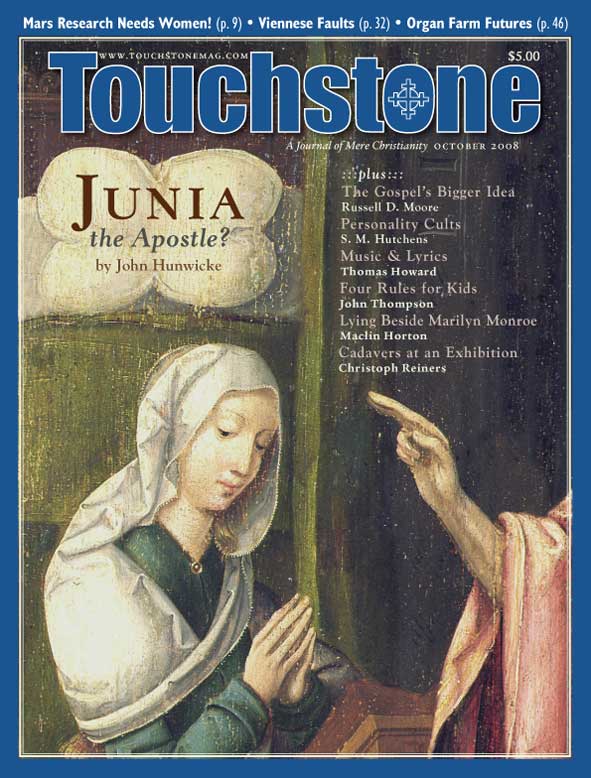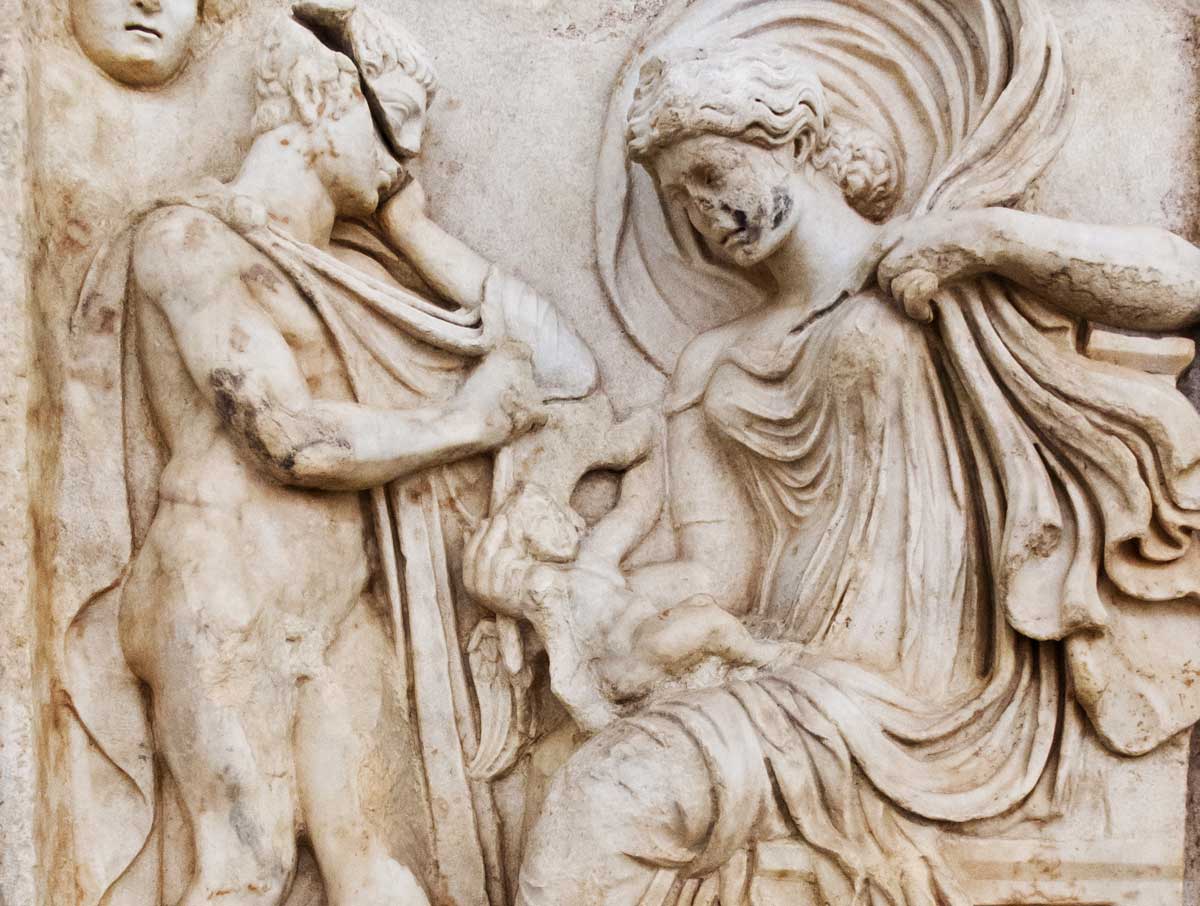Junia Among the Apostles
The Story Behind a New Testament Saint & the Egalitarian Agenda
Junia—The First Woman Apostle
by Eldon Jay Epp
Augsburg Fortress Publishers, 2005
(138 pages, $16.00, paperbook)
A review by John Hunwicke
In this important work, Epp investigates the mysterious disappearance of Junia from the traditions of the church. Because later theologians and scribes could not believe (or wanted to suppress) that Paul had numbered a woman among the earliest churches’ apostles, Junia’s name was changed in Romans 16:7 to a masculine form . . . calling Junia an apostle seemed too much for the tradition. Epp tracks how this happened in New Testament manuscripts, scribal traditions and translations of the Bible. In this thoroughgoing study, Epp restores Junia to her rightful place.
Thus the publisher’s press release introducing Eldon Jay Epp’s book, Junia—The First Woman Apostle. And thus our minds are transported back to an ancient fantasy world which by now we know extremely well; a sinister world of oppressive patriarchy; a world in which cunning and manipulative ecclesiastics falsify records to eliminate whatever threatens their status or their prejudices; a Dan Brownish or Elaine Pagelsish world of truths concealed for centuries, of cowled, conspiratorial monkish scribes in dark and mysterious cells busily destroying evidence.
Poor Epp must have been very distressed and embarrassed if he read this passage, because, to be fair to him, his book is not at all about scribes suppressing the fact that Junia was a woman. It is not at all about tracking how this happened in manuscripts. And, so far from giving Tradition a walloping, Epp in fact demonstrates that Tradition, and the New Testament manuscripts, got Junia’s gender right.
Linda Belleville, only months before Epp’s book was published, made most of the same points as he does, and came to the same conclusions in a rather less pompously written article, which is a much better read ( New Testament Studies [ NTS] 2005). She prefaced her work with a decidedly less tendentious argumentum than the one dreamt up by Epp’s publishers: “Christian tradition from the Old Latin and Vulgate versions and the early Greek and Latin fathers onwards affirms and lauds a female apostle. Yet modern [my emphasis] scholarship has not been comfortable. . . .” (Epp’s book justifies part of his own description of it as “lengthy and tedious”; I write “part” because I do not want to contradict all of Beverly Gaventa’s claim in her Foreword that it is “slender and important.”)
Source of the Sex Change
Most readers will probably know the main facts about Junia, her gender, and the continuing controversy about whether she was “an apostle.” She occurs, linked with Andronicus, in Romans 16:7 as one of many recipients of St. Paul’s greetings as he writes to recommend himself to the Christians of Rome, and she does so in a Greek accusative Iounian. Depending on what sort of accent you put on it, the corresponding nominative can be either Iounias (masculine) or Iounia (feminine).
So which accent do the early manuscripts have? Neither; because early manuscripts lack all accents. As soon as accents started to be added to Greek texts, the feminine accent was added; and as soon as the invention of printing made mass production possible, the feminine accent was that chosen by editors.
As far as translations are concerned, the Latin Vulgates give either Juniam or Juliam, a manifestly feminine name; and the sixteenth-century English translations, including the Authorized Version and the Roman Catholic version from Rheims, regarded the name as feminine. Belleville and Epp show that the overwhelming number of writers and commentators in the first Christian millennium and a half believed St. Paul was addressing a female Junia; and like Burer and Wallace, whose 2001 NTS article (arguing that Junia was not an apostle) ignited the present phase of this controversy, they agree that the feminine form of the name is overwhelmingly more probable (or, to use Eppspeak, certain).
John Hunwicke is the former Head of Theology at Lancing College in England and is now Senior Research Fellow and Pusey House, Oxford.
subscription options
Order
Print/Online Subscription

Get six issues (one year) of Touchstone PLUS full online access including pdf downloads for only $39.95. That's only $3.34 per month!
Order
Online Only
Subscription

Get a one-year full-access subscription to the Touchstone online archives for only $19.95. That's only $1.66 per month!
bulk subscriptions
Order Touchstone subscriptions in bulk and save $10 per sub! Each subscription includes 6 issues of Touchstone plus full online access to touchstonemag.com—including archives, videos, and pdf downloads of recent issues for only $29.95 each! Great for churches or study groups.
Transactions will be processed on a secure server.
more from the online archives
calling all readers
Please Donate
"There are magazines worth reading but few worth saving . . . Touchstone is just such a magazine."
—Alice von Hildebrand
"Here we do not concede one square millimeter of territory to falsehood, folly, contemporary sentimentality, or fashion. We speak the truth, and let God be our judge. . . . Touchstone is the one committedly Christian conservative journal."
—Anthony Esolen, Touchstone senior editor









